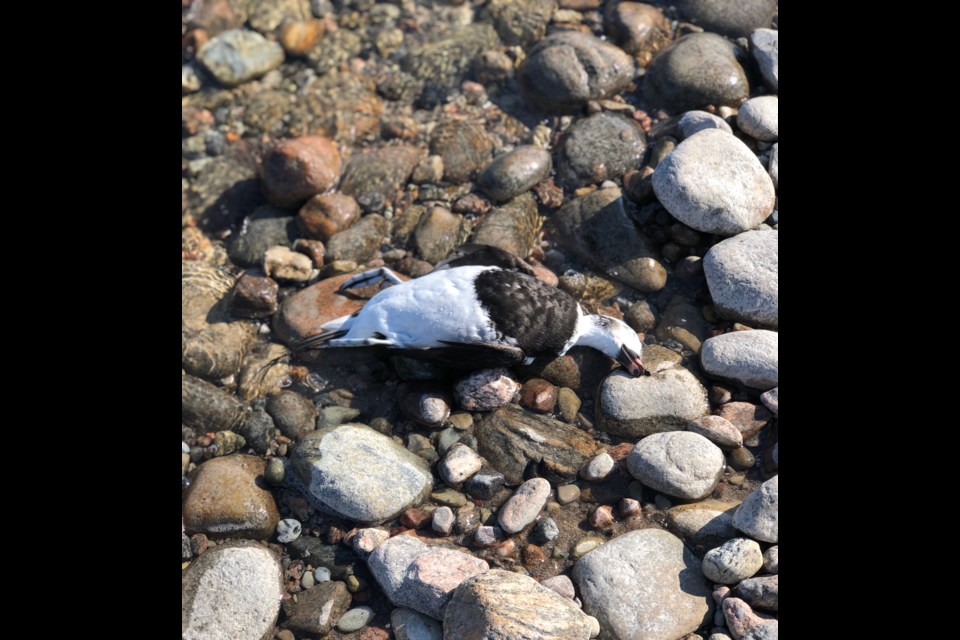During a recent stroll along the beach, Tiny Township Grazyna Chochol made a shocking discovery.
“I counted 46 dead ducks along a 1.5- to two-kilometre stretch,” says Chochol, who found the waterfowl either in shallow water near the beach or washed up onshore near Tiny Beaches Road North and Shelly Lane.
“I called the MNRF and spoke with Chris who told me that it is probably the result of annual botulism bacteria in fish that waterfowl consume, but asked me to report to the local MNRF in Midhurst for possible investigation.”
An official with the Ministry of Natural Resources and Forestry (MNRF) confirmed that ministry staff are aware of the bird die-off in Tiny Township and have been in contact with the Canadian Wildlife Health Cooperative.
“In the interest of public health, we’re asking the public to not handle dead or dying birds,” said MNFR spokeswoman Anita Tamrazi. “Keep pets on a leash and away from dead or dying animals.”
Canadian Wildlife Health Cooperative wildlife pathologist Brian Stevens said they've started receiving birds from this area.
"We have reports from both the north and south shores of Georgian Bay," Stevens said. "We will be testing all of the birds that we receive for avian influenza and the first three ducks that we tested were negative.
"Based on the time of year, species found (long-tailed ducks mostly so far), and location, we suspect this is a type E botulism outbreak. We had a die-off in the same area around this time last year, that we suspected was botulism as well.
"Once these birds have been tested for AIV, we will perform a necropsy to help determine the cause of death."
Tamrazi said they’re encouraging shoreline property owners and others to report dead or dying waterfowl to the Canadian Wildlife Health Cooperative at (866) 673-4781. To report fish die-offs, call the MNRF 1-800-667-1940.
For more information on what to do when you find dead animals or fish on your property, click here.
